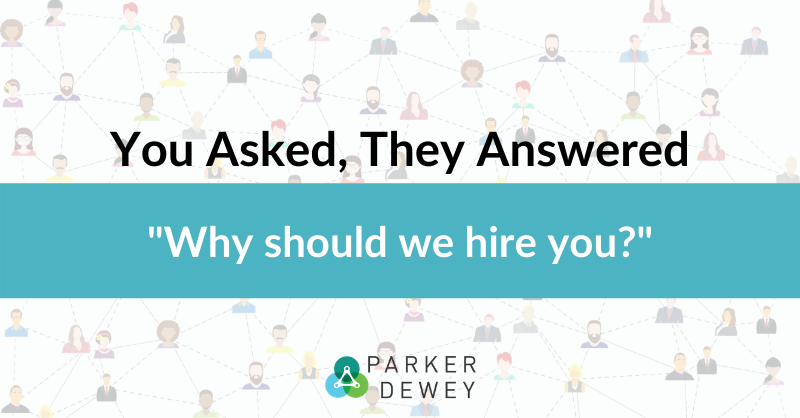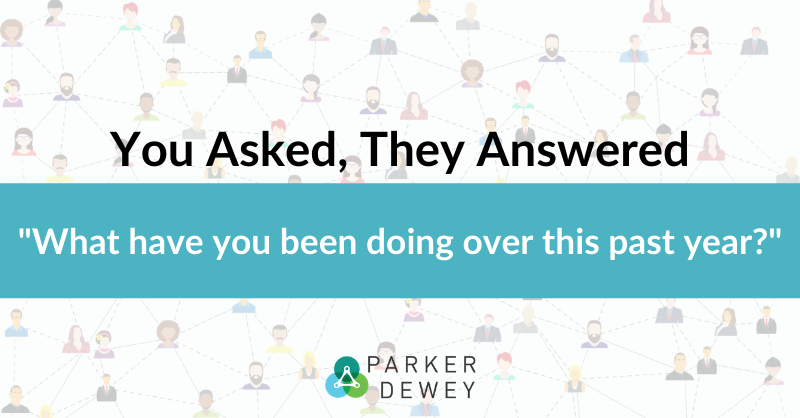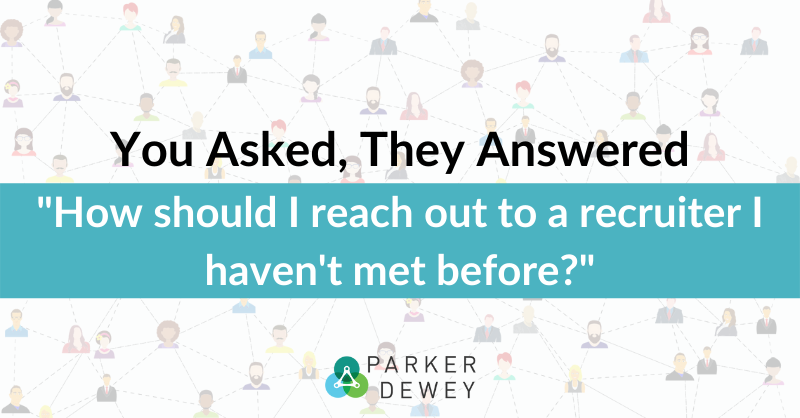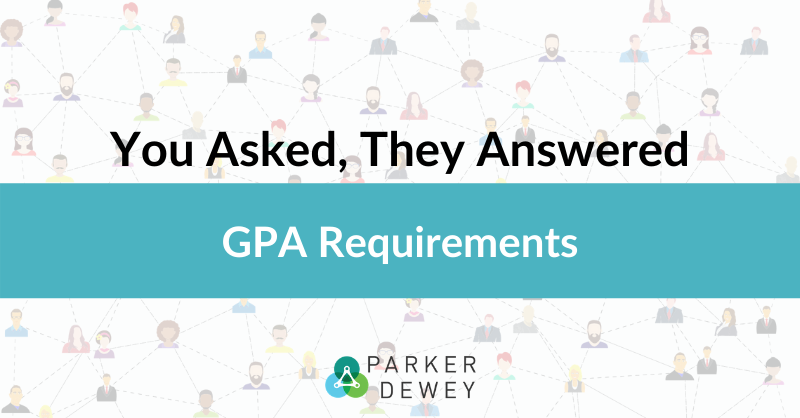
You Asked, They Answered: How to answer the dreaded "why should we hire you" question
At Parker Dewey, we love connecting college students and recent grads with companies offering short-term, paid, professional projects! We also love when we can help bring these two groups, along with career service professionals, faculty, organizational leaders, recruiters, and hiring managers, together to share knowledge that helps our entire network!
Our monthly feature: You Asked, They Answered, helps those looking to launch their career get the inside scoop on all things related to finding the right job after graduation.
This month's question comes from Shelby, a neuroscience major at the University of Vermont who will graduate in 2023:
“What does a great response look like to the 'why should we hire you' question?”
To answer, we tapped our network of early career and career service professionals. Here's what they had to say:
Marilou Bisson, Talent Acquisition Specialist, Campus Recruitment at Coveo:
"I don’t like the 'why should we hire you' question. I see a job as a win/win partnership. So instead, I like to ask: 'What are you hoping to achieve in this job/internship?' This will show me if we are able to meet the candidate's expectations for the job and if we are aligned. When we ask this question, a great answer could start with:
-
- I’m hoping to gain some practical knowledge about X position
- I’m hoping to improve a particular soft skill (communication, collaboration)
- I’m hoping to gain insights on the industry"
Ray Clere, Director, Stuckert Career Center at University of Kentucky:
"This question can throw some candidates off balance because it's so direct. I would encourage anyone who encounters this question to take a second to collect themselves before offering a response that should broadcast like a closing statement, but which strikes a balance between sounding overly confident and needy.
A recommended response would be something along the lines of this:
In preparing for today's interview, I conducted a lot of research on (insert organization name) and this unit/division of (insert organization name). Coming into the interview, I was excited and a bit anxious, but my discussion with the search committee and office team have really affirmed for me that my (insert 'background,' 'experience,' 'training,' or similar verbiage) are a strong match for this position and, if selected, I'm confident that I can be a strong contributor and grow professionally with (insert organization name)."
Sammie Walker Herrera, Manager for Integrated Partnerships and Career Coach at University of Florida:
"I suggest students take one of two strategies. The first strategy is to bring in the different themes from the entire interview and reinforce them in this question.
As you heard in my stories about my classroom lab experiences and my multiple leadership positions, I am the best possible hire because you need someone who can lead a team, and can inspire folks from different academic disciplines.
The second strategy is to use this question to share a story that you were hoping they would ask about but didn't, and use this as the base for why you're the best possible candidate.
In addition to the detail that I've shared about my leadership experiences and in the classroom knowledge, I'm the best possible candidate because I've developed the data analysis skills that you need to be truly successful in this role. In the last two months, I completed a 6-hour LinkedIn Learning course path using [insert technology/software here] and I'm building out projects using that software with my peers."
TL;DR: Use this question to collect your final thoughts, share any additional details that did not come up, and summarize what you hope to achieve in the role.




